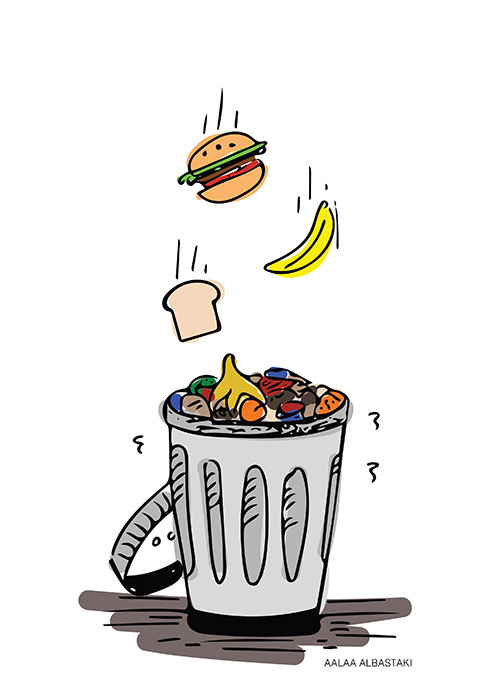Article in brief: we do not have to remain in the food wastage crisis but we can take small steps towards a solution.

We were taught as children not to waste food. Our mothers reprimanded us by saying: “Finish your food. Starving people dream of having your dinner”. If such a message is ingrained in us, why do we not live by it nowadays?
Picture this common scenario: A small group of three or four get together in a restaurant. They order almost everything off the menu. They pick at their plates and take photos for their social media accounts. Most of the dishes will remain untouched. More often than not, nobody will ask to take away the leftovers, and the restaurant will dispose any uneaten food.
I have seen this scenario way too often and was unaffected by this growing trend until one morning when I happened to be at a local breakfast place.
After a delicious meal, a waitress began clearing our table, and took the untouched fresh breadbasket and tossed it in the bin right in front of us. That was an eye opener for me. At the back of our heads, we all know that extra food will be thrown away by the restaurant behind closed doors. However, as long as we don’t see it, it is easier to deal with it. It is one thing to read about food being wasted, and it is completely different thing to witness it. I got irritated by the incident. Had I seen this coming, I would have asked them to pack the breadbasket for me.
According to the UNEP (United Nations Environment Program), 1.3 billion tons of food go wasted every year[*]. At the same time, there are so many efforts trying to curb this issue. Even influential television shows such as ‘Khawater’ bring this issue of food wastage up year after year in an attempt to bring about change.
But in a society of excessiveness and conspicuous consumption, many are undaunted by the idea of hunger and starvation. To some, rumbling tummies are only experienced during Ramadan. So what can be done about it?
One solution is to encourage changing habits by first influencing the mindset. People will only stop wasting food once they start valuing it. The way I see it, change starts at home. We would benefit in the long term by re-educating mothers and raising awareness about wasting food in schools.
This is how I changed my habits. During a work trip to a remote village in Ghana, I encountered a child selling fruits on the street. I decided to buy a mango from him and started eating it only to notice the eyes that were on me. I remembered my mother’s words and how we tossed away food that others would be delighted to eat. From that moment on, I started appreciating every bite. This in turn made me order less in restaurants, or take the leftovers home. Other societies have advanced by creating a culture of leftover recipes. This is worth considering.
In the old days, we shared our food with our neighbors. We never looked at food as simply nutrition but as a blessing and a privilege. In order to prevent food wastage, we do not have to abandon eating out. We simply have to raise awareness and value food by doing small meaningful adjustments such as ordering less food at restaurants and taking home the leftovers.



